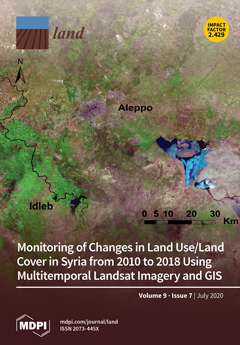Resource information
New town development as a form of large-scale development is not a new phenomenon, particularly in developing countries. This development mainly takes place in peri-urban areas due to the high pressure caused by the growing population and the lack of facilities and infrastructure in city centres. As an effect, local communities who originally occupied the land often lose their rights over the property their livelihood might have relied on. Property rights can be grouped differently, classified according to different bundles: appropriation, ownership, and formality of rights. This paper investigates to what extent new town development in Indonesia has affected the property rights of local communities, in terms of the transformation of rights and security level. Moreover, it examines to what extent this transformation has been affected by urbanisation pressure. Ample attention is paid to the transformation of various bundles of rights concerning different usage of property, both residential and cultivated land. A total of 252 questionnaires were distributed to three different locations of new towns in Indonesia. A before-after analysis was employed to identify the transformation of the property rights and their security level, followed by multiple linear regression analysis to observe the influence of the urbanisation pressure to the security level. The research reveals that the transformation of property rights of local residents mainly concerns the appropriation rights. The analysis also indicates that there is a tendency that the security level decreases. Statistically, this appears to be affected by urbanisation pressure variables: type of land, land use, and occupation. With this study, we offer on the one hand a conceptual framework for assessing property rights, while on the other hand, we provide empirical evidence regarding the effects of new town development on property rights transformation and its security level.


